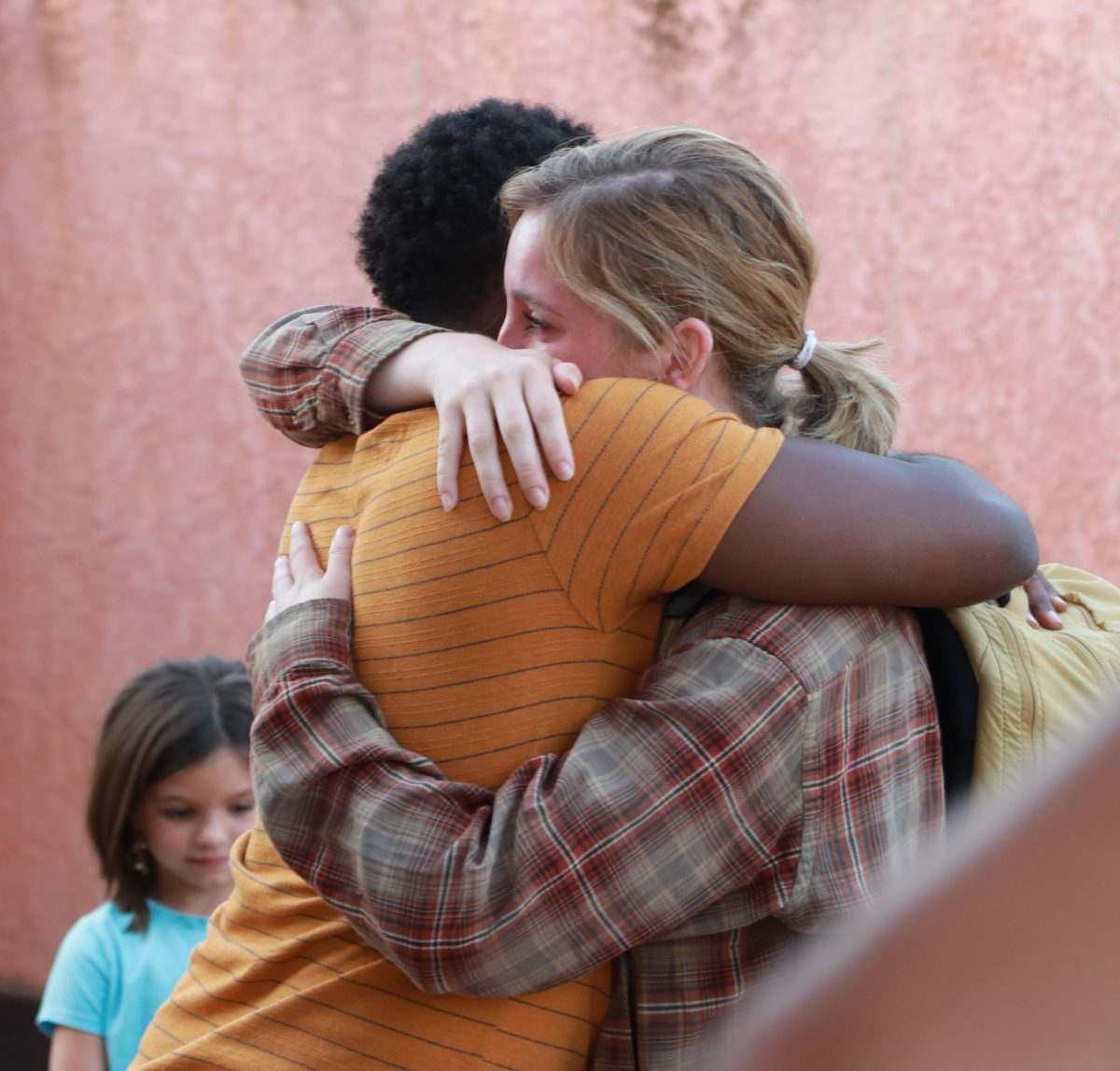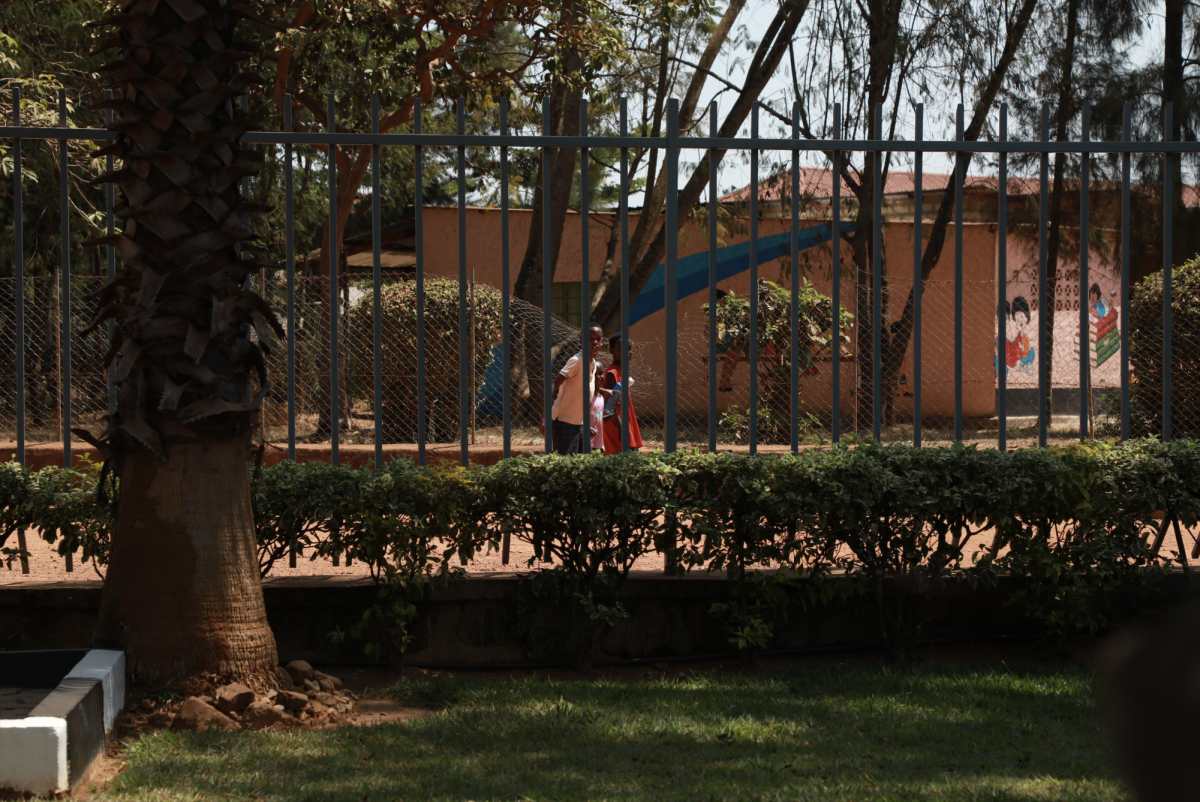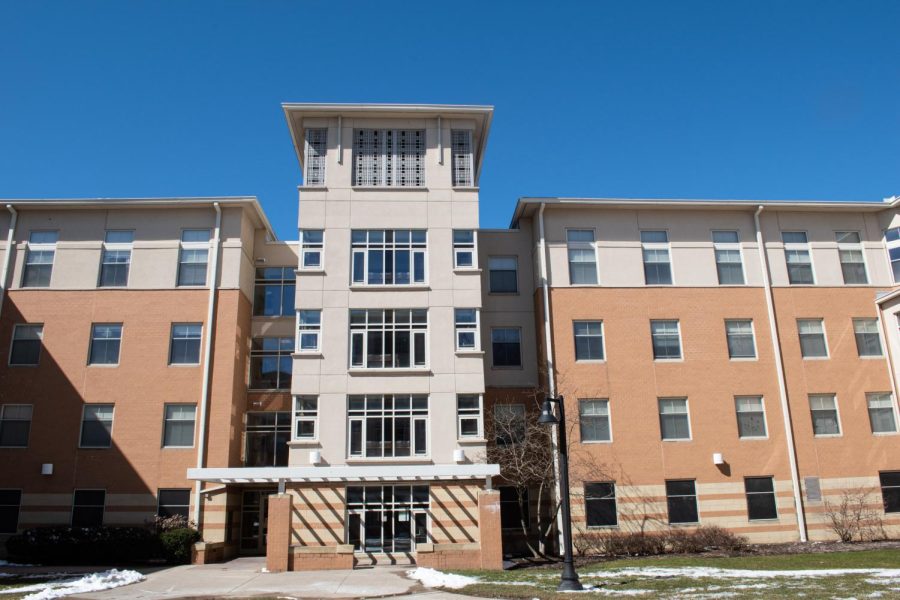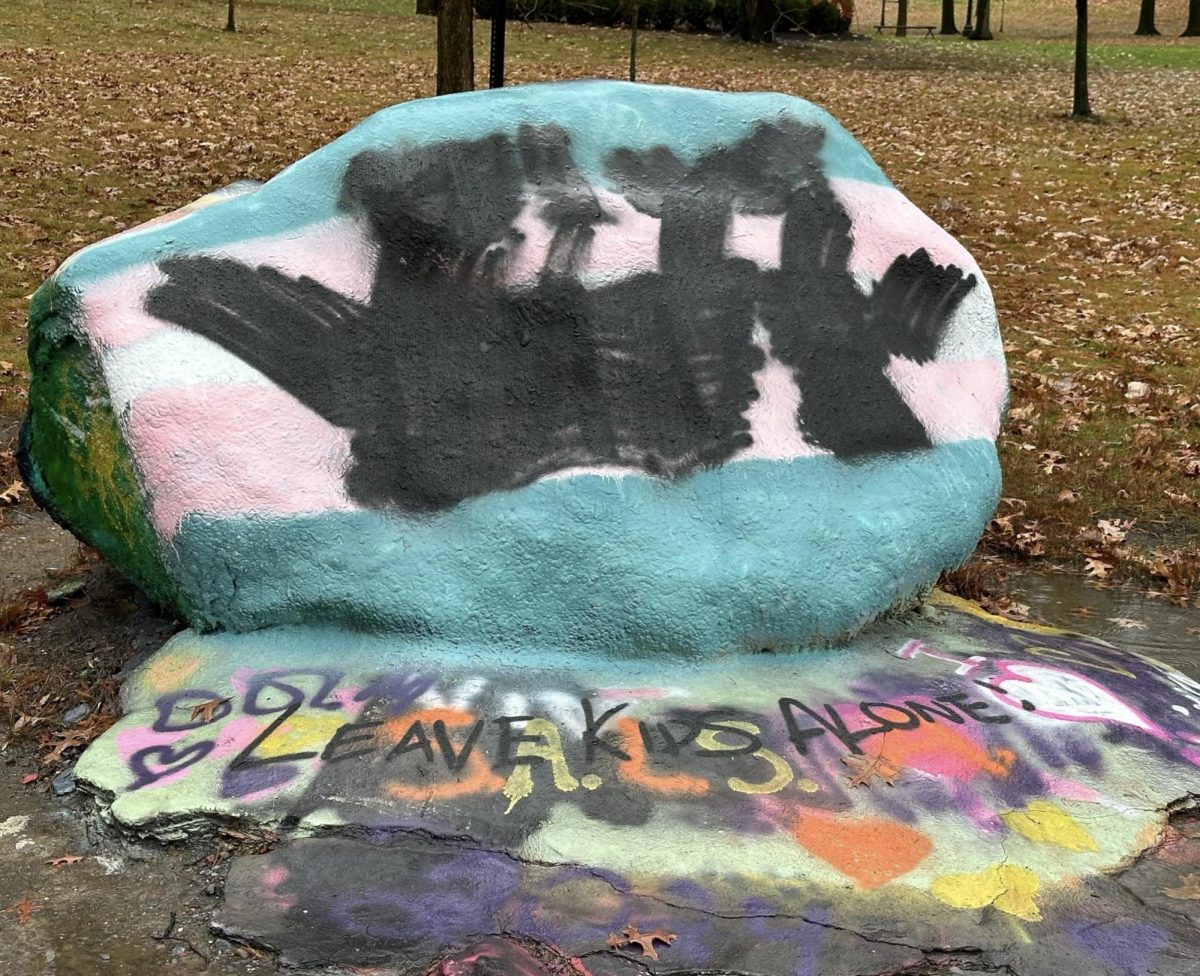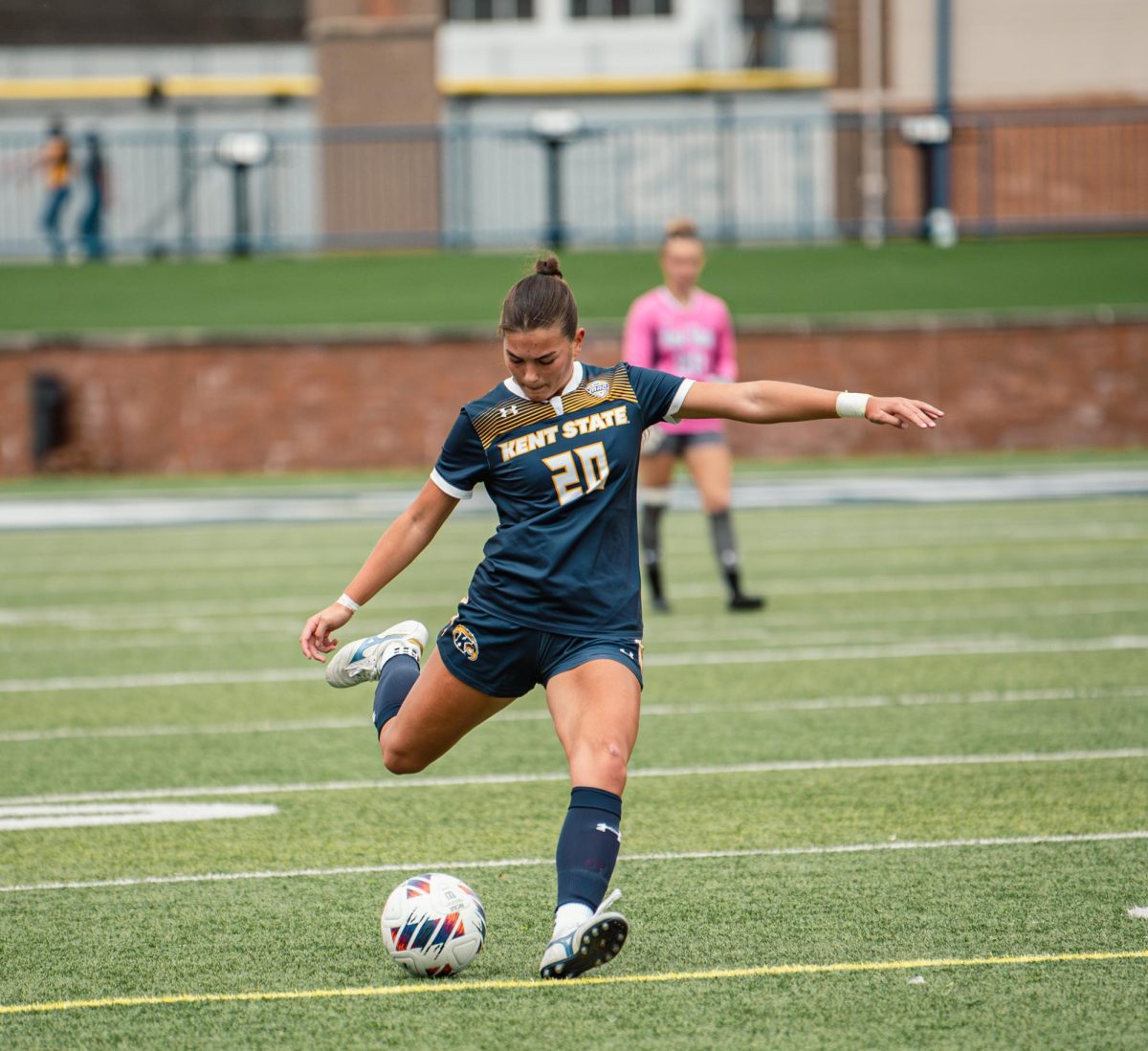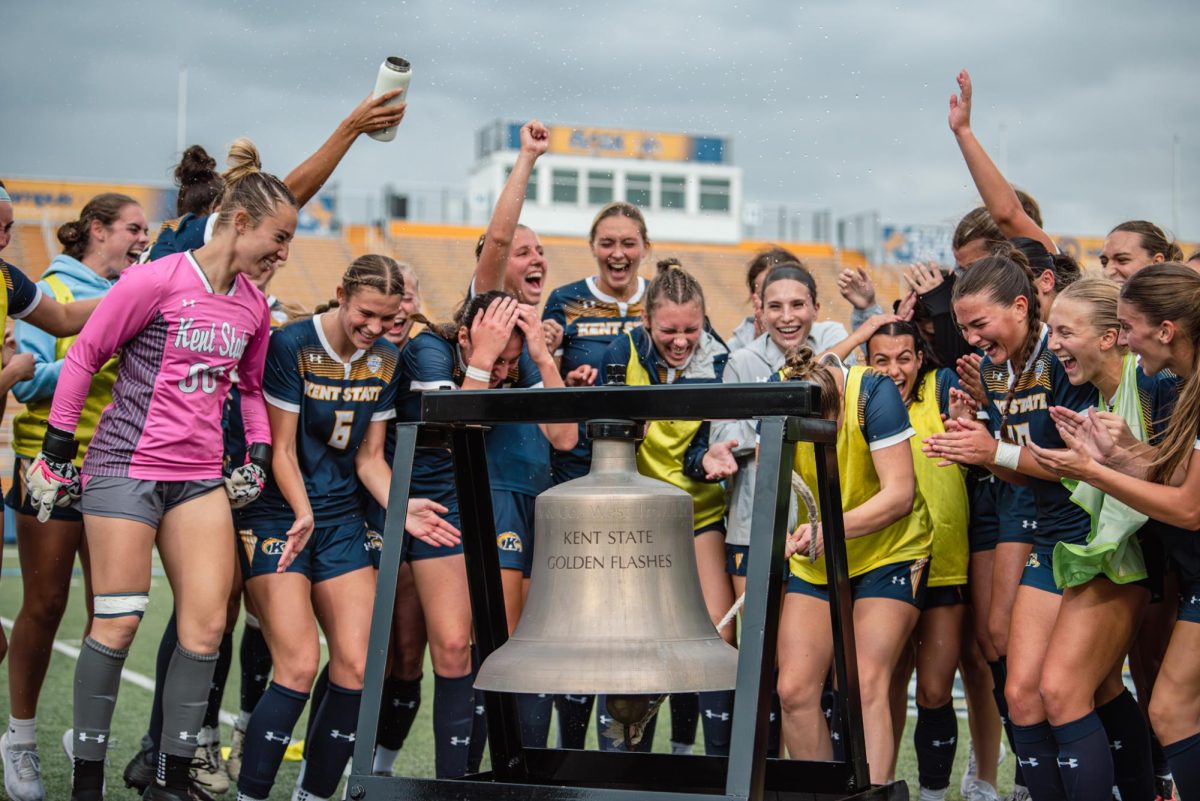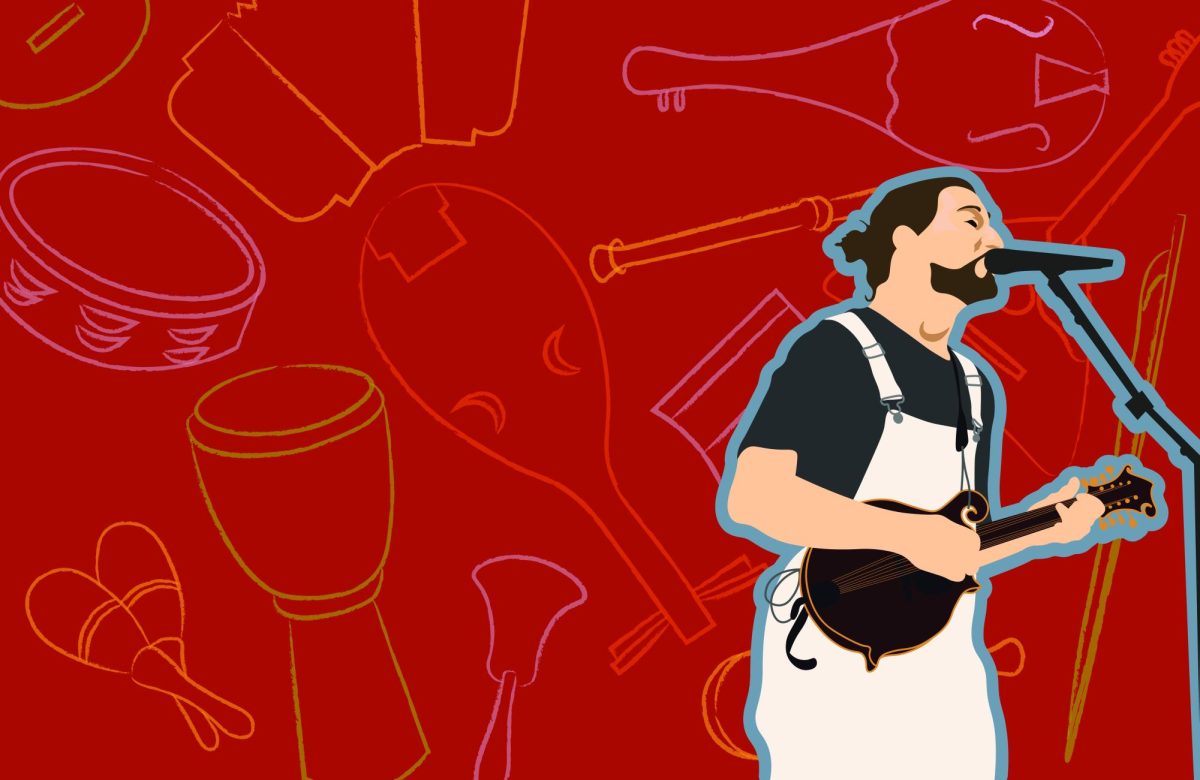Beginning our last week in Rwanda, the class met with the Ministry of Education, the national police and private sectors, learning about how the government implements peace education, community policing and foreign investments.
On Tuesday, Miles Listerman, a Kent State Business major, and I went to the house of Déo Habimana, a recent graduate of the University of Rwanda, for dinner.
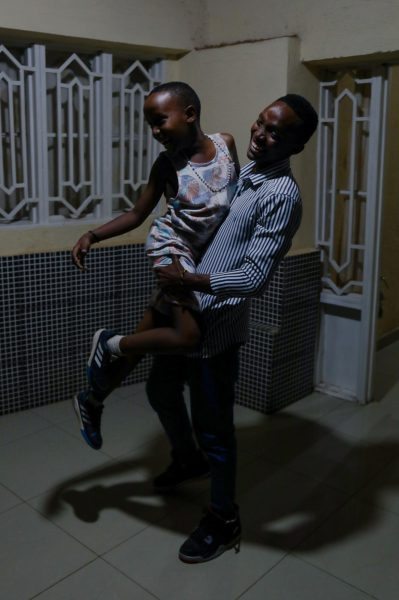
When we walked into Déo’s house, we were met by his eight-year-old brother, Michael, and sixteen-year-old sister, Reine. Michael was running around the living room between the couches, as Reine was preparing milk for us.
They live in a quaint house, with religious photos next to their parents wedding photo hanging on the walls, lit by the fluorescent light of the TV screen. On the upper level of their house is a dog they called Simba, that they warned “bites strangers.”
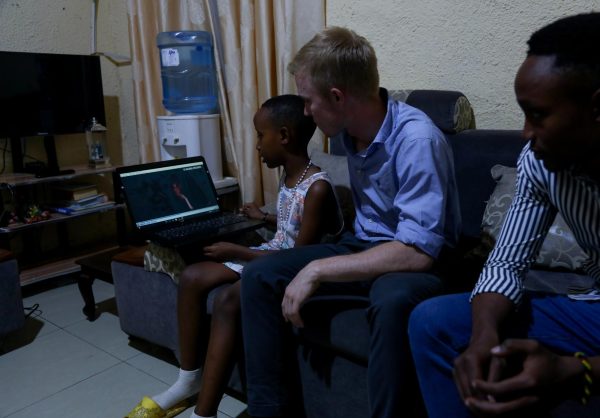
We ate sausage, Rwandan bread and peanuts in the living room while Michael sat on Miles’ lap and Reine admired my long hair. After eating, we played a game of soccer on their porch, and Michael ran back and forth after the ball, laughing as Miles and Déo stole it from him.
After a few hours, Déo’s parents, Mr. and Mrs. Habimana, returned home from work. His mom works at a bank while his dad works as a car salesman.
The first thing they did when they saw my camera was hug each other and grin for a picture.
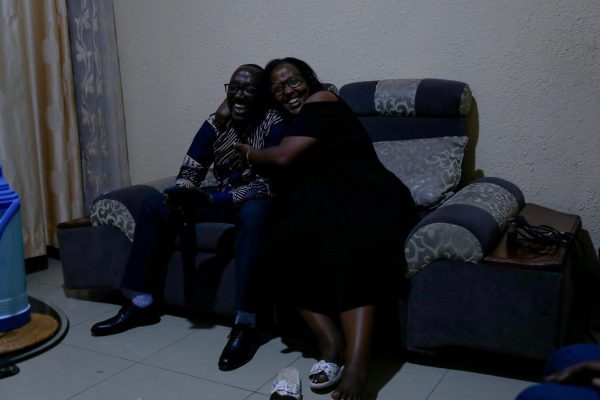
Over the next hour, Miles and I went back and forth with Mr. and Mrs. Habimana asking each other questions. We shared photos of our own families with them, stories about our lives in the United States and lessons we’ve learned during our time in Rwanda.
When we asked how they met, they told us an elaborate story, laughing as they told it. Reine said her father asked her mother on a date on multiple occasions, but her mother played hard to get for months. Finally, her mother gave in and bought her father a flower to express her love for him.
They said even though they have been married many years, they are still in their honeymoon phase, which is rare for a Rwandan couple. Their advice to us was to marry for love, as they did.
As we stood outside saying our goodbyes, Reine slipped her bracelet she was wearing onto my wrist, giving it to me as a gift. I insisted she did not have to give me anything, but she urged harder that I keep it.
The next day, we headed to Akagera, a national park about two hours away in the Eastern Province. Along the way, we stopped at Zipline, an organization using drones to deliver medical supplies throughout the country.
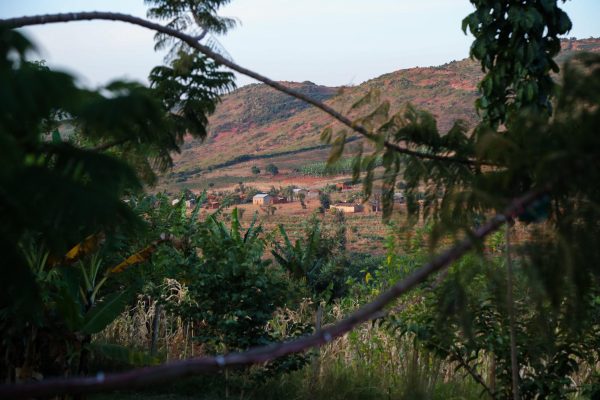
At Akagera, we stayed at a lodge outside the park, where we sat outside, looking at a view of the mountainside with kids playing soccer in the distance and blue and black birds circling the trees. Once it got dark, we were able to see the Milky Way in the middle of the bright stars. In the morning, we went on a safari, seeing animals in their natural habitats in the savannah.
On Friday, our last official day of class, the students traveled an hour away to Nyamata Genocide Memorial, a church preserved as a memorial after the genocide.
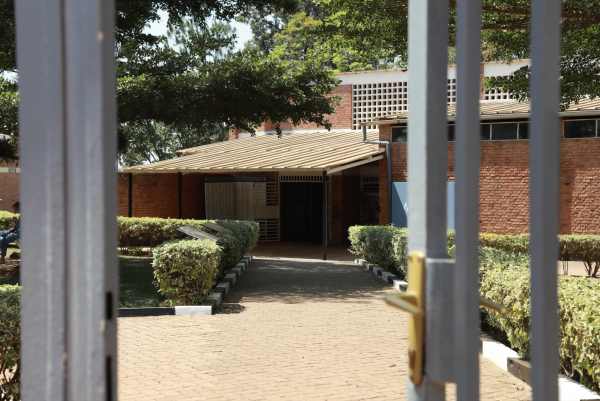
Outside the church, boards display the story of what happened during the genocide, explaining how thousands of Tutsis were killed and tortured in this location. Inside the church, thousands of clothing items lay on top of coffins. Down the stairs are open coffins with human remains. The remains preserved belong to the women killed in the church, many of them under the age of 30.
Many of us, including myself, became emotional when witnessing this memorial.
All the memorials we visited, including Nyamata, displayed stories of people who went against the norm to help the Tutsis.
The head priest of St. Famille and Centre St. Paul protected the people at the church from being overrun by militia. Almost every other church in the country was overrun, but St. Famille became a place of refuge because of him.
Sula Karuhimnbi, a 70-year-old widow, hid and protected 17 Tustis by pretending she was a witch possessed by evil spirits and threatening militia. She fed the Tutsis she gave refuge to from her field, and they all survived another day.
Silas, a member of Interahamwe militia who worked from the inside, risked his own life to save others. He lied for people, deceiving the Interahamwe and taking them to the Burundi border. After the genocide, he invited the people he saved to his home, and they shared stories.
The memorial at Nyamata quotes him, “Today, some of the people I helped are like my children; some are like my parents.”
Later Friday evening, Pacifique Niyonzima, who started the Rwanda Institute with Sarah Schmidt seven years ago, invited us to his house for dinner. He lives in a spacious house with a porch overlooking the city near the airport. The seven students, Dr. Schmidt and Niyonzima stood on the porch visiting with each other on one of our last days in Rwanda, becoming sentimental as we talked about the best parts of the trip.
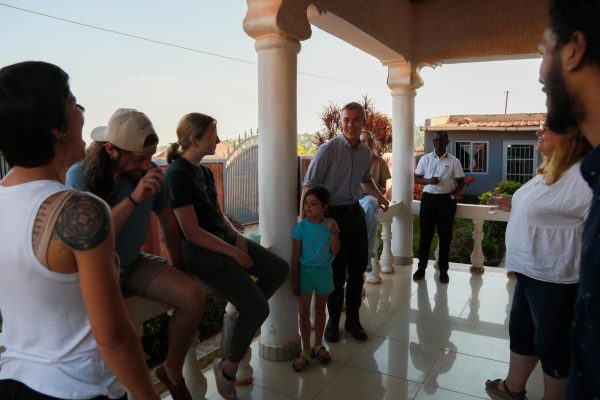
Dr. Sarah Schmidt, our professor, said her favorite part was all of us and getting to see what we accomplish in the future, bringing what we learned in Rwanda home with us.
Dana Oleskiewicz, Ph.D. cultural foundations student, said she felt blessed to meet all the students on the trip.
Kaleb Bowen, criminology student, said that his favorite part was learning a new culture.
Emily Spencer, family studies major, said that the relationships she was able to build on the trip were most impactful to her.
Lily Keister, higher education master’s student, said that the whole experience was her favorite part; she couldn’t pick one moment.
Jordon Egbert, higher education master’s student, said that he was most impacted by our visits to the northern province and reconciliation village.
Miles Listerman, business major, said that his favorite part was the Rwandans he met.
Pacifique Niyonzima, our University of Rwanda Colleague, expressed admiration for the partnership he and Schmidt forged.
Personally, I am so grateful that I have been able to document the Rwandan culture and this trip. From the people we learned about to everyone we’ve met over the past three weeks, Rwanda has made a great impact on all of our lives.
Sophia Lucente is a photographer for Kent State’s Collaborative NewsL@b. Contact her at [email protected].


